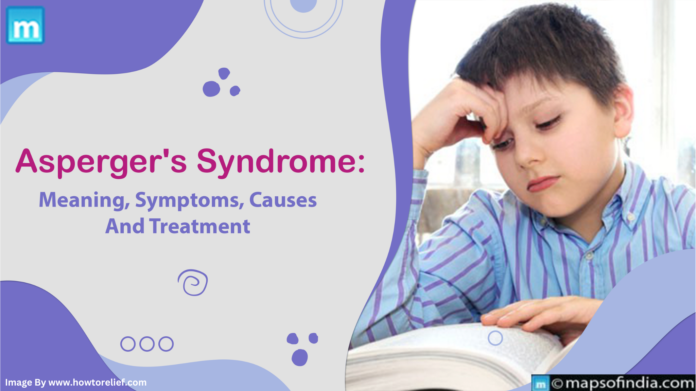Asperger’s Syndme (AS), also known as Asperger’s Syndrome, was previously recognized as a neurodevelopmental disorder characterized by severe difficulties in social interaction and nonverbal communication, as well as behavioural patterns of interest and restricted and repetitive. Asperger’s Syndrome got its name after the Austrian paediatrician Hans Asperger.
Asperger explained that the children in his care could not form friendships and did not understand others’ feelings and gestures in the year 1944. Children were found to be clumsy and engaged in one-sided conversations about their interests. In general, children and teens with Asperger’s Syndrome can talk to others and do well academically. However, they struggle to understand social situations and subtle communication patterns such as body language, humour and sarcasm. They may also think and talk about a topic or interest or only want to do small activities. These interests can become obsessive and interfere with daily life instead of providing children with healthy social or recreational outlets.
The exact cause of Asperger’s Syndrome is not known correctly. Although highly inherited, the underlying genetics have not been conclusively determined. Environmental factors are also thought to play a role. Brain imaging fails to detect common underlying diseases.
Symptoms of Asperger’s Syndrome:
- Children with Asperger’s Syndrome have obsessive social interests and unusual social skills.
- They have minimal or inappropriate social interactions.
- Those who suffer from this mostly don’t understand emotions well or have fewer facial expressions compared to others.
- Conversations with them revolve around a specific topic or themselves.
- Speech is unusual and sounds high-pitched, flat, loud, quiet, or robotic.
- They don’t make use of nonverbal communication or understand them. It can include body language, gestures, and facial expressions.
- They often become upset at any small changes in their life.
- They face difficulty with handwriting and have clumsy and uncoordinated movements.
- They face difficulty in managing their emotions. It also leads to behavioral or verbal outbursts, self-injurious behaviors, and tantrums.
What are the causes of Asperger’s Syndrome?
Hans Asperger suggested that the Syndrome has a genetic contribution. He observed his patient’s family and found common traits among their family members. Most behavioural genetics studies show that all autism spectrum disorders share common genetic mechanisms. There can be common genes, where specific alleles make individuals vulnerable, and different combinations result in different severity and symptoms for each AS patient.
Treatment and therapies
- Applied Behavior Analysis (ABA) program, including Positive Behavior Support (PBS), parent and teacher training and support in behaviour management strategies used at home and school, and training social skills for more effective interpersonal interactions.
- Medicines to treat comorbid conditions such as major depressive disorder and anxiety disorders.
- Cognitive behavioural therapy can be used to improve stress management relating to explosive emotions or anxiety, and it will also help to reduce repetitive routines and obsessive interests.
- Occupational therapy or physical therapy to help improve poor sensory processing and motor coordination.
- Social communication intervention is specialized speech therapy that helps improve the pragmatics and communication of normal conversation.




